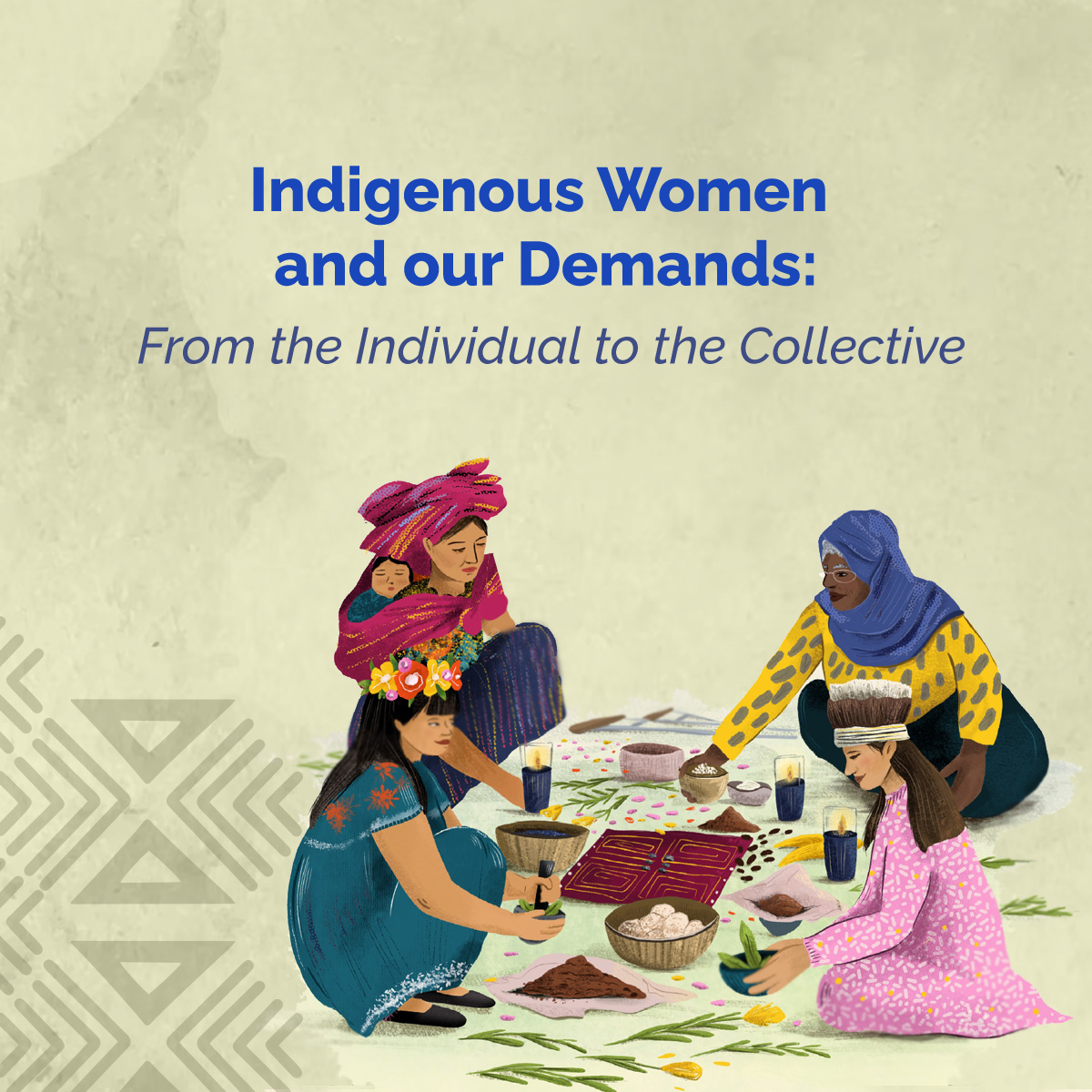
After her divorce, Sandra Lovelace Nicholas returned with her son to the Tobique Reserve, in Canada, where she was originally from. Upon her return, she learned that because of her marriage to a non-indigenous person, she and her son had lost their Maliseet identity and, with it, their access to housing, health care and education. This led Lovelace Nicholas to undertake a legal battle that, after many years, marked a milestone in the fight for the rights of Indigenous Women.
Our Identity Is Collective
The indigenous identity comes from the indigenous communities or nations that preceded the colonial states, yet it is currently denied by many of those states. Despite the fact that the 2007 United Nations Declaration on the Rights of Indigenous Peoples recognizes the right to self-determination, various member states of the United Nations have yet to align their constitutions with the dispositions of the Declaration. This has led to situations of exclusion and discrimination, mainly against women, as in the case of Sandra Lovelace Nicholas.
“For Indigenous Peoples, the right to self-determination is synonymous with decolonization.” Elsa Stamatopoulou, first Head of the Secretariat of the United Nations Permanent Forum on Indigenous Issues, explains that for Indigenous Peoples and individuals, self-determination is a human right that represents a starting point for historical reparation.
One of the three pillars that support the United Nations Declaration is self-determination. With the recognition of this right, we reaffirm our identity as First Nations. Having a legal identity as Indigenous Peoples allows us to preserve our governance systems and ways of life, and to be participants in the construction of Well-Being. This will be achieved as long as we move within the framework of human rights. The other two pillars have to do with land and cultural rights.
Unfortunately, the non-recognition of the indigenous governance system is a form of domination by the States, keeping the Indigenous Peoples out of sight. We can witness this in the “national development strategies” based on the extraction of natural resources and their export in the form of primary products. These strategies do not respect the principle of prior, free and informed consent of our communities.
“Development” serves as a pretext to carry out projects that put our health at risk and threaten the environment. For example: oil extraction in the lower Amazon basin has caused unfathomable natural disasters in the communities of Pastaza, Corrientes, Tigre, Marañón and Nazarhed. A single barrel of oil can contaminate close to 80 million litres of drinking water. In other words, the equivalent of 32 Olympic pools of oil-contaminated water flowed in the Utcubamba River because of just one barrel. This makes the water poisonous to all life forms in the river and its surroundings.
According to the indigenous worldview, the territory is a living organism that is deeply related to the harmony between community, family and people. For this reason, indigenous people do not speak of “development”, but of Well-Being, which is a way of advocating for our ancestral knowledge and our ethical principles to protect our lives.
According to Andrea Carmen (Yaqui), International Executive Director of the Council of Indigenous Treaties, as human beings, indigenous people enjoy individual rights, but the rights to self-determination, to land, and to preserve our languages and our culture are exercised collectively. For this reason, it is important for indigenous people to talk about their individual as well as their collective rights, because our identity is collective.
Our Individual Rights Must Also Be Respected
The recognition of our collective rights as Indigenous Women must also come with respect for our individual rights. The United Nations Declaration on the Rights of Indigenous Peoples indicates that the Peoples must respect the human rights of the indigenous people that make them up. In other words, indigenous identity and rights cannot and should not be imposed on anyone. Furthermore, the political duties of indigenous people, according to their system of governance, must be aligned with international human rights standards.
In this sense, Indigenous Women have spoken out against the specific discrimination we receive inside as well as outside of our territories. In fact, the Political Declaration and Action Plan of the world’s Indigenous Women, adopted at the Global Conference of Indigenous Women, refers to the limited access to education and health that we and our daughters have. It also points out that we are the ones with the highest rates of poverty and infant and maternal mortality. In this document, we also highlight that we are subject to different forms of violences, including domestic violence and sexual abuse, in contexts of human trafficking, armed conflicts, environmental and political violence, and violences inflicted by extractive industries.
What happened in the ’60s and ’70s in Greenland is an example of this triple discrimination. At that time, the Government of Denmark decided to implant contraceptive devices in some 4,500 Indigenous Girls and Women, without their consent, to prevent the growth of the Inuit indigenous population and to promote the “modernization” of the island. This practice is considered a violation of the human rights of girls and women which, in turn, had a collective consequence for the Inuit Indigenous People. Indeed, it is estimated that during that period, pregnancies were reduced by half, from 1,674 in 1964 to 638 ten years later.
As Indigenous Women, we are aware that attempts have been made through time to dominate our peoples through our bodies. For this reason, it is important for us and for our peoples to achieve reproductive justice, so that wa can affirm our right to decide whether we want to be mothers or not, and to raise our daughters and sons in safe and healthy environments.
Standing tall, Indigenous Women follow the path laid out by Sandra Lovelace Nicholas forty years ago. Together, we fight the violences made against the land, the ancestral culture and the bodies; we defend our rights, both individual and collective.




